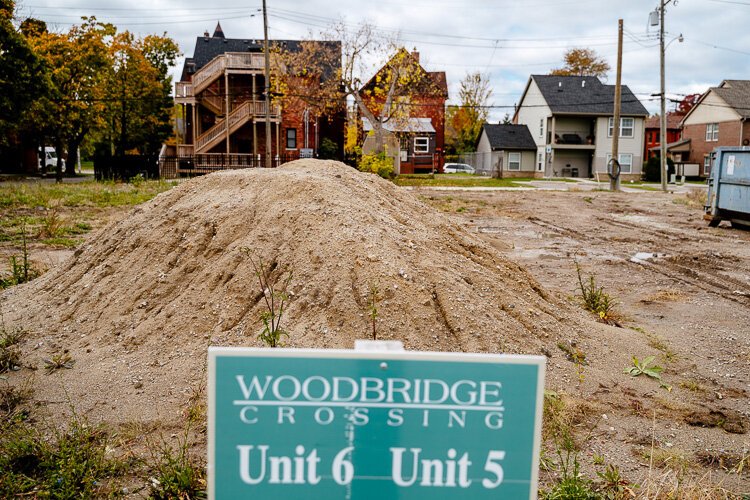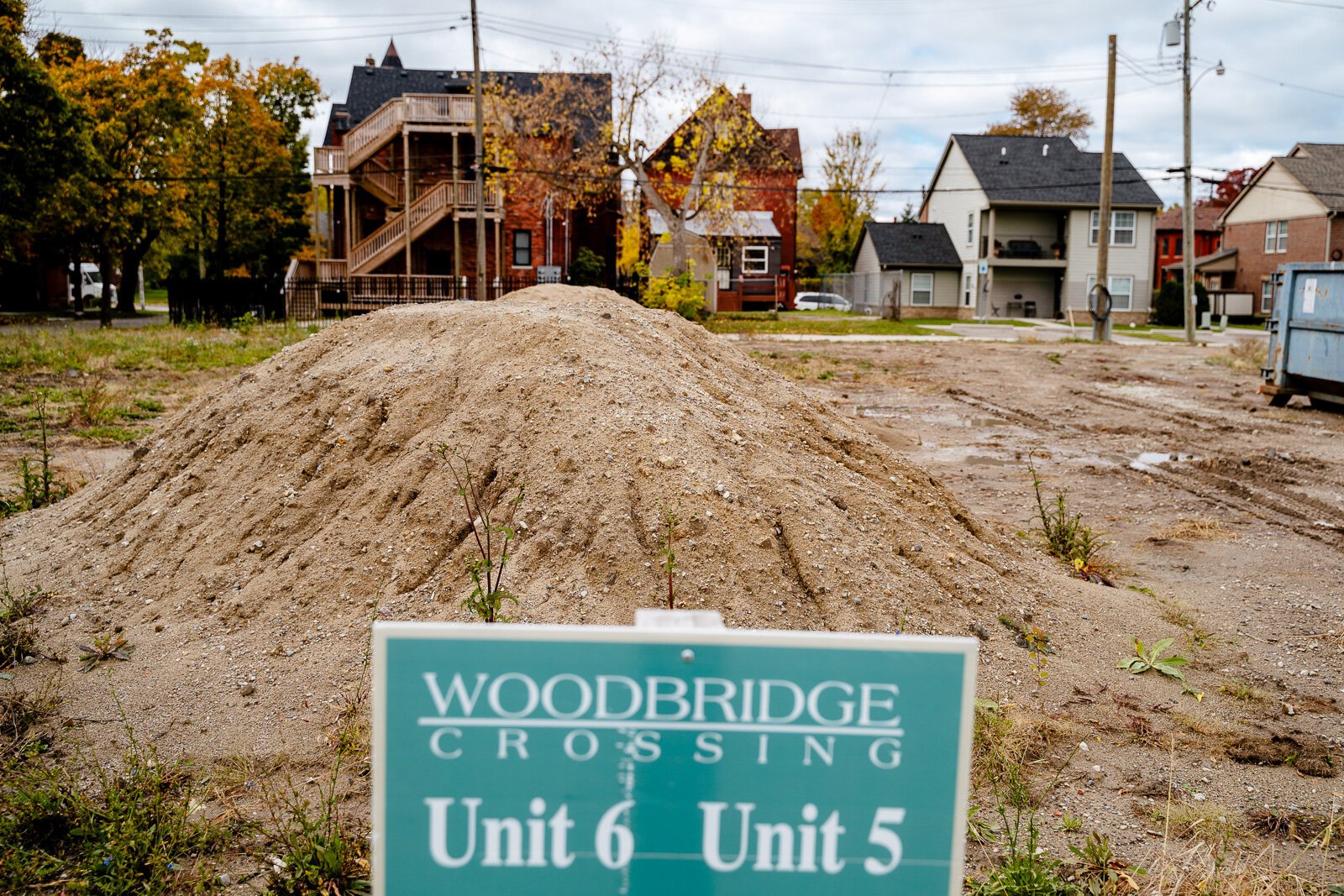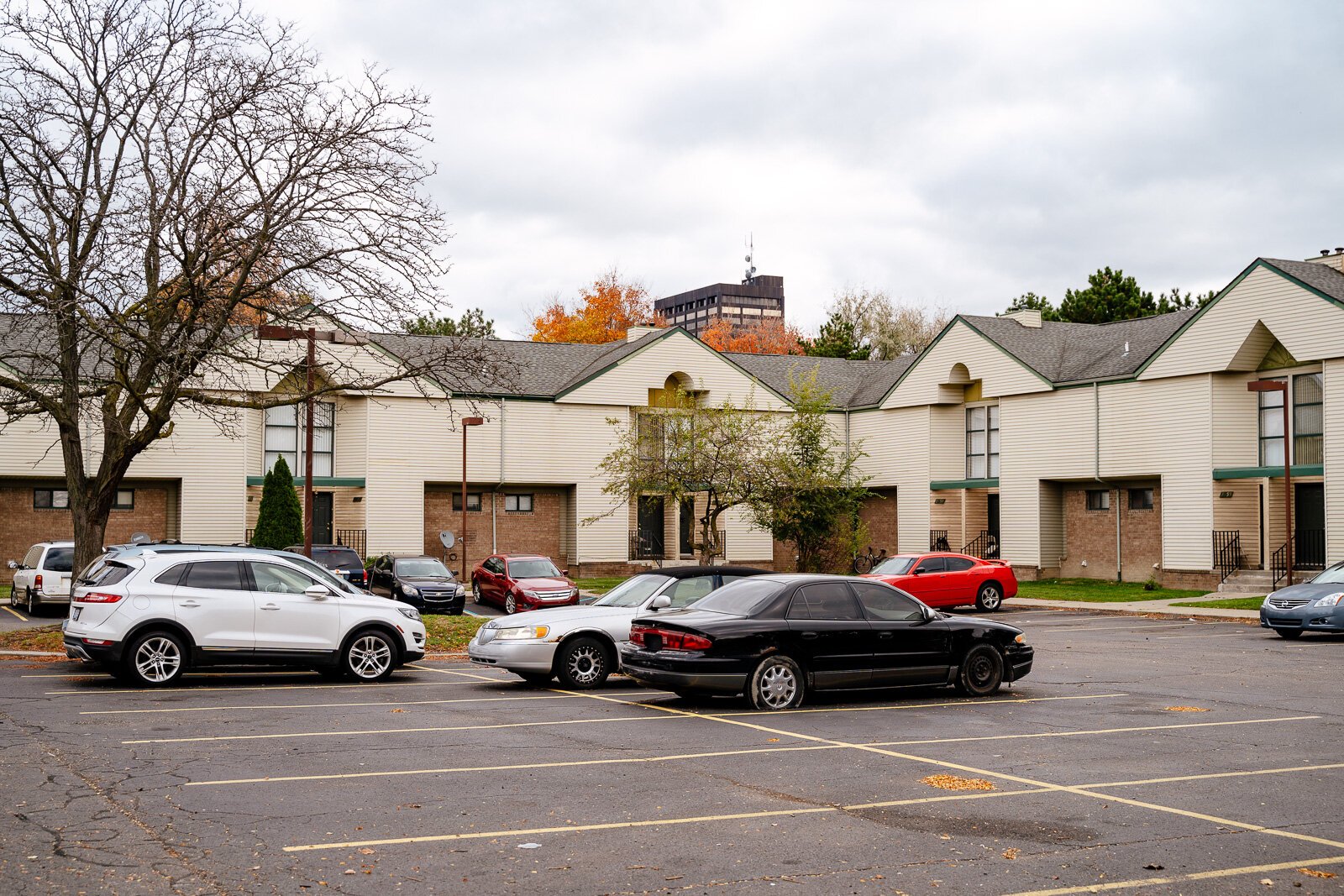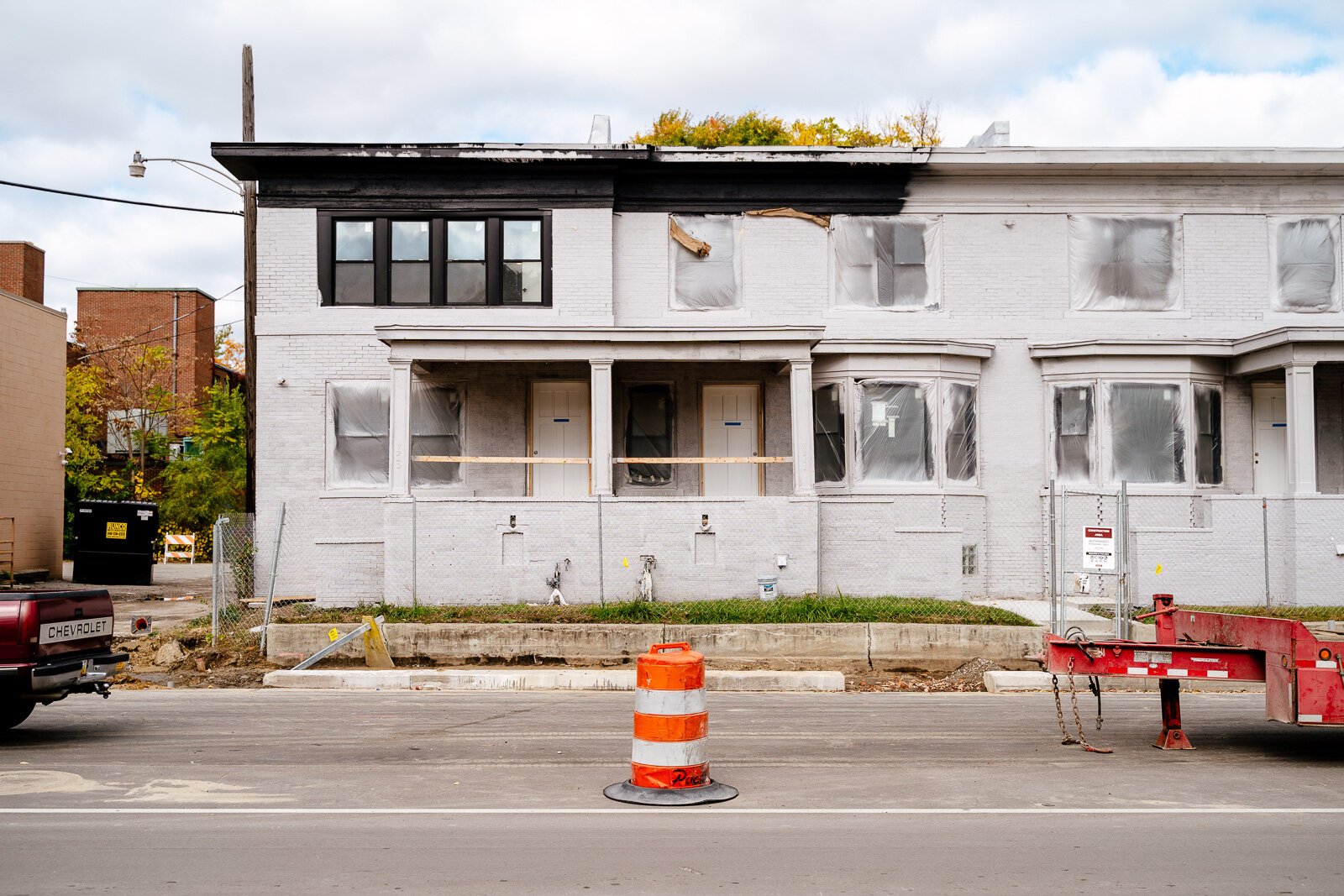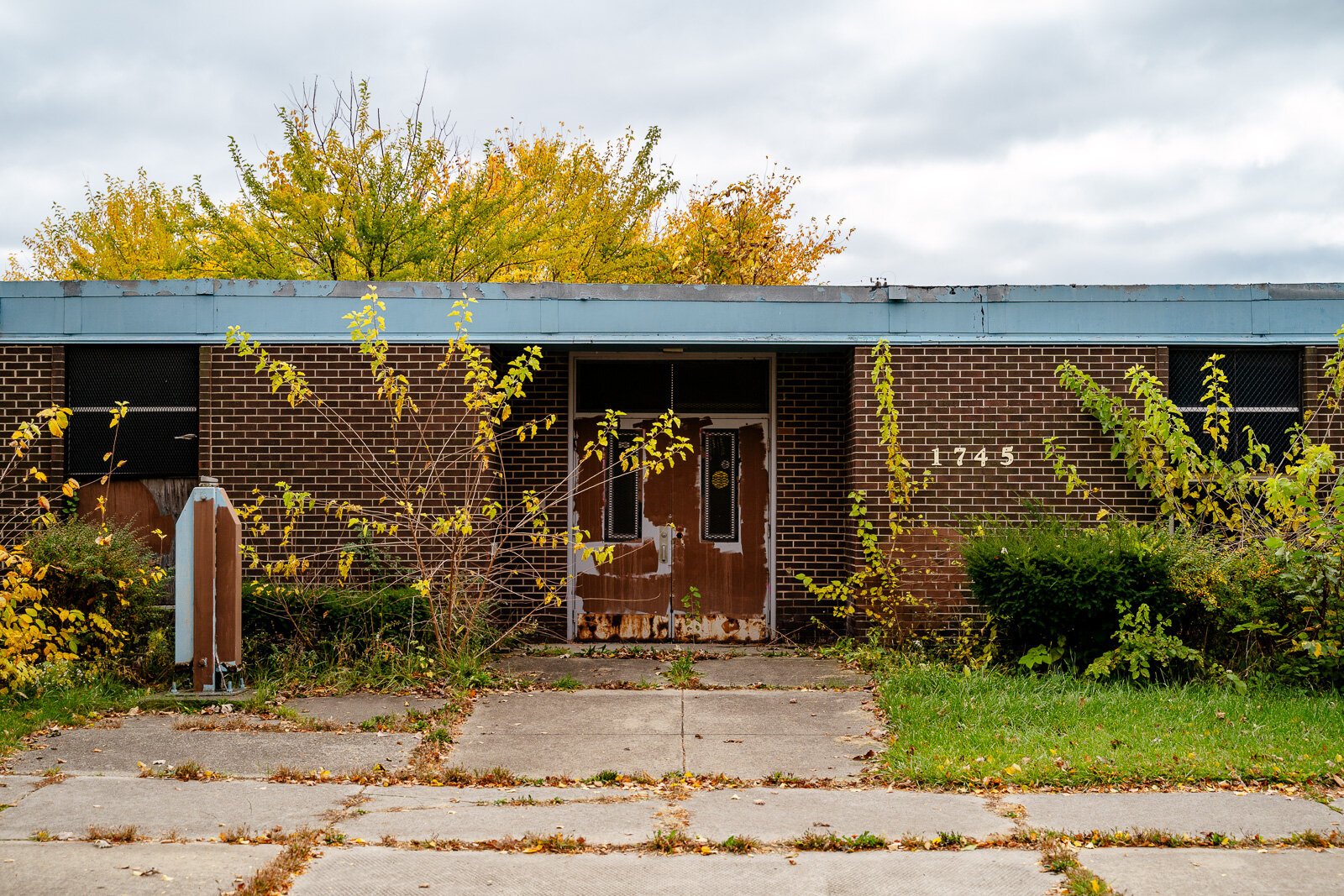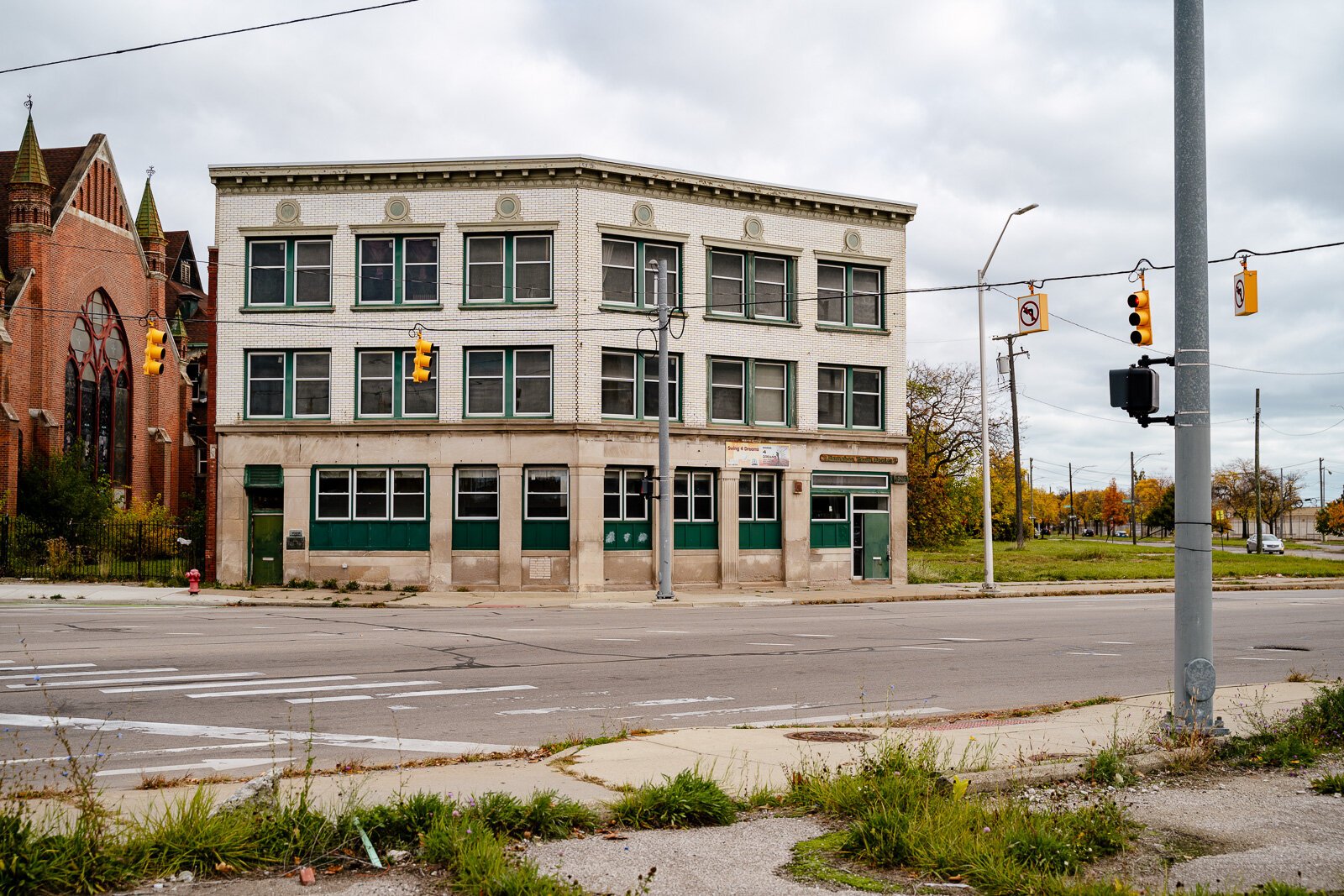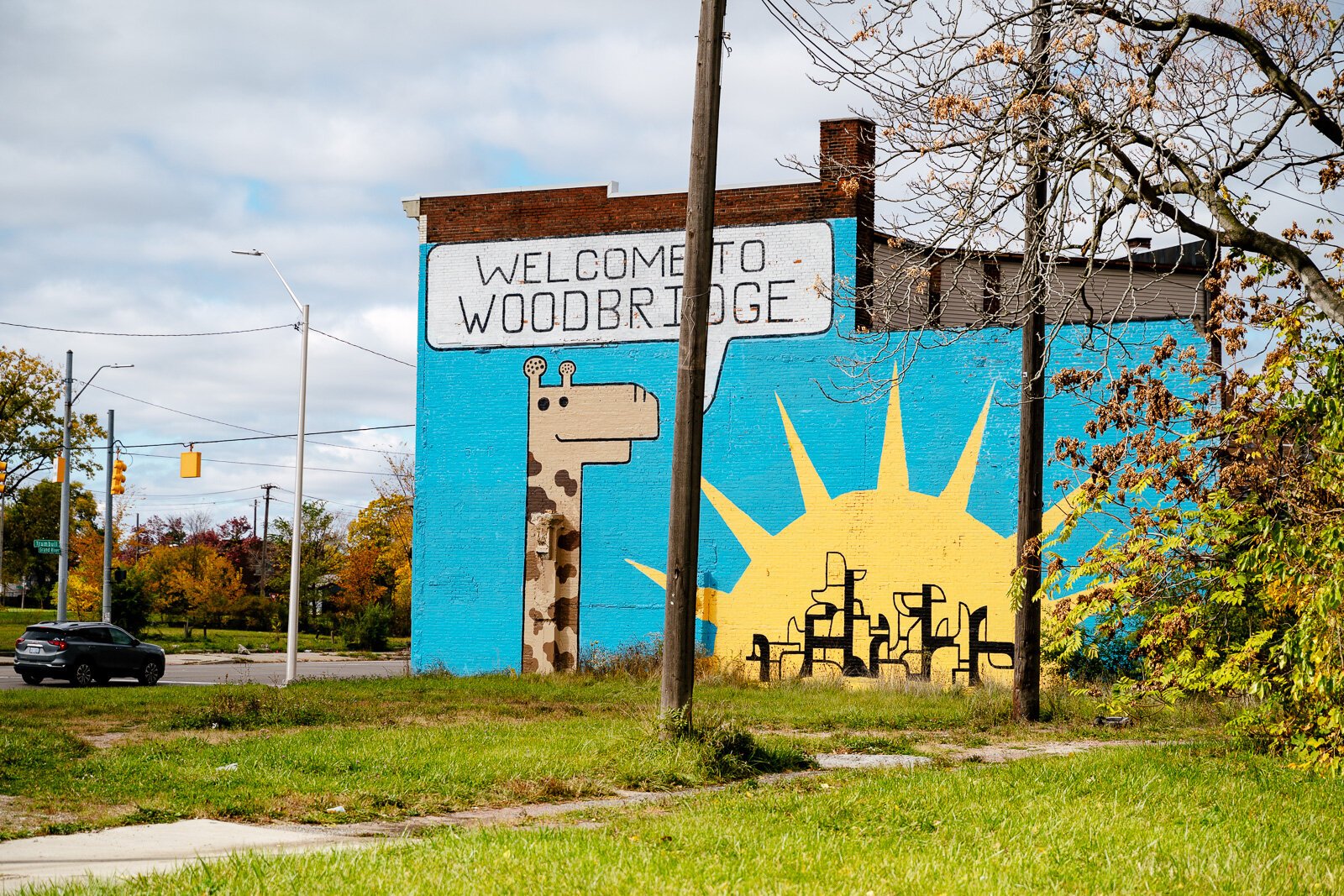Taurean Thomas, 37, has called Detroit’s historic Corktown neighborhood home for most of his life. Walking around the streets and sidewalks these days, though, a lot has changed from what he remembers from 20 years ago.
“It used to be five days a week that downtown Corktown area was dead, super quiet, nothing going on. Recently we’ve had COVID, but I mean Corktown is buzzing,” he says.
From the emergence of restaurants and bars like Slows Bar BQ and The Sugar House to the redevelopment of the former Tiger Stadium grounds into the Corner Ballpark by the Detroit Police Athletic League, Corktown has certainly experienced some changes.

Perhaps the most dramatic shakeup came two years ago when Ford Motor Company announced plans to transform the long derelict Michigan Central train station (and some of the surrounding area) into a campus for autonomous vehicle and mobility research. Despite delays connected to the pandemic, the auto supplier is still committed to completing construction by 2022.
Thomas, now a professional consultant, has memories of playing in the abandoned train station as a kid, but he’s thankful that the building — for years a symbol of the city’s decay — is finally being fixed up, bringing in more businesses and attention to the area.
That said, the 37-year-old still has concerns about where Corktown could be headed. What was once a more solidly working-class neighborhood has seen an influx of people from more affluent backgrounds — it’s not unusual these days to see people dressed in business suits walking past people in work coveralls on Michigan Ave.
Housing and land costs have also skyrocketed. According to a 2019 Detroit News article, residential real estate prices in the Corktown area jumped 14 percent from March 2018 to February of last year, a development more than likely connected to Ford’s investment in the area.
For Thomas, the most pressing concern, however, is what will happen to the residents of Clement Kern Gardens, the Section 8 subsidized apartment complex he grew up in and where his mother still lives.
Located in Historic Corktown on Bagley Street between Trumbull Avenue and Rosa Parks Boulevard, the facility sits on a roughly 7-acre property and is made up of 87 rental units with between two and four bedrooms per unit. The residents who live there aren’t well off financially, and due to HUD subsidies currently pay no more than 30 percent of their income for rent.
According to Thomas, Clement Kern Gardens is the only place left for poorer people to live in the area. And over time it’s become isolated from the surrounding Corktown community. Right now, residents are concerned about their prospects for staying there. The owners of the complex, American Community Developers, Inc. (ACD), have announced plans to renovate Clement Kern Gardens, which will involve temporarily relocating current residents within Corktown or elsewhere on the complex site during reconstruction. Though, apparently they’ll have an option to return to the site when it’s completed with rents that are reflective of their income.
The redevelopment of Clement Kern Gardens is connected to the City of Detroit’s larger vision for Greater Corktown and a program called the Choice Neighborhood Initiative (CNI). As a HUD-assisted site, the apartment complex plays a central part in a grant application to secure up to $30 million in federal CNI funding. According to a city RFQ planning document, In order to qualify for that money, the city must “replace distressed public and assisted housing with high-quality mixed-income housing that is well-managed and responsive to the needs of the surrounding neighborhood.” If the project is approved, money from the grant would be directed towards the development of affordable housing options for low- and moderate-income households throughout Corktown, resident services, and neighborhood improvements.
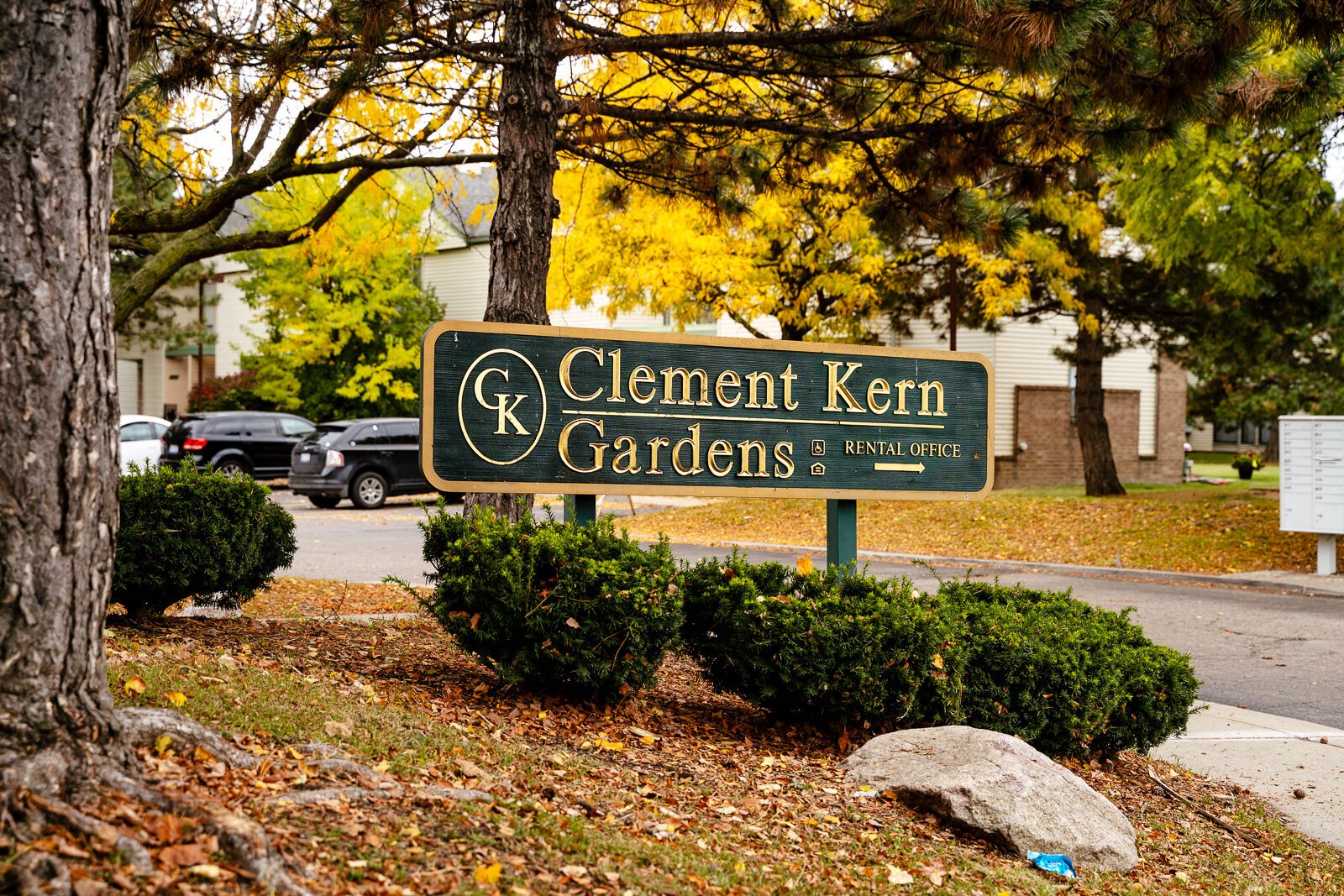
According to Deputy Director of Detroit’s Housing and Revitalization Department Julie Schneider, the City has been engaging residents of Clement Kern Garden since last year and that the CNI plan is based on their input. She also says the City is committed to ensuring that development be conducted with the needs of residents placed first, while also working towards maintaining and increasing the long-term affordability of housing on the site.
“If a resident relocates initially outside of Clement Kern Gardens, they will have the right to return,” she says. “Relocation costs will be covered for households throughout the project. Rents will continue to be based on a household’s income in any location they choose. Residents of Clement Kern Gardens will be able to live in modern, quality housing with all of the amenities of any new market rate development in the area.”
Mike Essian, Vice President of ACD, says his company has been holding regular meetings to update residents about what’s going on there and is very concerned about their welfare
“Our goal with any redevelopment program is to preserve the housing that’s there,” he says. “Regardless of any plans that are approved, their rent will still be based on 30 percent of their income. As the neighborhood improves, I think it’s important things are done to protect residents who currently live there.”
ACD has no plans to sell the property and would be the redeveloper of the site. Redevelopment is not expected to begin until early 2023. The Duggan administration is slated to present its plans on the project to Detroit City Council this week.
From where Thomas is standing, though, communication about the project hasn’t been very clear and that’s made him nervous.
“It might turn out well for the owners and the city, but it might not turn out so well for the tenants in this area,” says Thomas. “I’m worried about what’s going to happen with my mother’s home. Where is she going to be relocated to? How is that going to work?”
Engaging longtime residents
While the changes occurring in Corktown are hard to miss, they’re not happening in isolation. Even though Detroit’s overall population is still declining (as it has for decades), pockets of the city are experiencing an influx of new people and investment.
While there have been some disagreements over whether what’s happening in these areas qualifies as gentrification, there is no doubt development is taking place and having an impact on surrounding neighborhoods. At times, there has been pushback about what’s happening and demands that new development be equitable and respectful of those who live near it.
Detroit community development organizations have definitely been part of this story, with many of them working to advance visions of development that address the concerns and needs of residents.
In his capacity as a consultant, Thomas has been working with one of these groups, Congress of Communities, to raise awareness about what’s happening in Corktown, in part by collaborating on a documentary to educate the public about Corktown’s history and culture.
The nonprofit’s efforts on this front aren’t limited to just the Corktown area, though. As its name suggests, Congress of Communities actually operates in several different Detroit neighborhoods — Hubbard Farms, Hubbard Richard, Mexicantown, Corktown and North Corktown.
Although the nonprofit wears a lot of different hats, it’s not shy about bringing up the G-word. In fact, anti-gentrification work is a core part of its mission.
With an office located in Southwest Detroit, the organization is well aware that new investment and new residents aren’t just putting down roots in Corktown and North Corktown.
“Development is coming this way. We’ve got new Detroiters all over,” says executive director Maria Salinas. “My role is to make sure we’re incorporating resident voice into development — and resident experience, perception, and values. And there is a lot of that not happening.”
When talking about gentrification, Salinas makes it clear her organization’s focus isn’t on color, but rather on preserving the cultures of the neighborhoods it works with and making sure residents have a seat at the table.
In 2013, in response to anti-gentrification graffiti that started popping up in Southwest Detroit, Congress of Communities organized a “Let’s Talk” community conversation on gentrification at St. Anne’s Church. Over 200 people showed up for the discussion, which was hosted by the Michigan Roundtable for Diversity and Inclusion and aimed at getting local residents, artists, and business owners to speak honestly with one another.
“It opened up a lot of dialogue, so we created a task force and we’re still doing that work,” Salinas says.
The organization has also played a direct role in bringing together residents with developers and other stakeholders. For example, it helped facilitate community involvement in a participatory budgeting program sponsored by the City of Detroit and Invest Detroit that allowed the Hubbard Farms neighborhood to choose how to spend $250,000 in Strategic Neighborhood funding; residents ultimately decided to use the money to enhance nearby Clark Park.
Congress of Communities also works with local nonprofits like Southwest Solutions to survey community members about new development projects. Lately, it’s been working with the Southwest Detroit Business Association (SBDA) on a 53-unit mixed-income and mixed-use project on West Vernor Highway near Clark Park called La Joya Gardens.
While that’s certainly a handful for any organization, as the director of Congress of Communities, Salinas often still wonders if it’s enough.
“What I worry about is: what if we don’t do our due diligence helping residents that are in poverty?” says Salinas. “I worry about displacement, because I’ve already seen it. What we do is just a small piece, but we need more!”
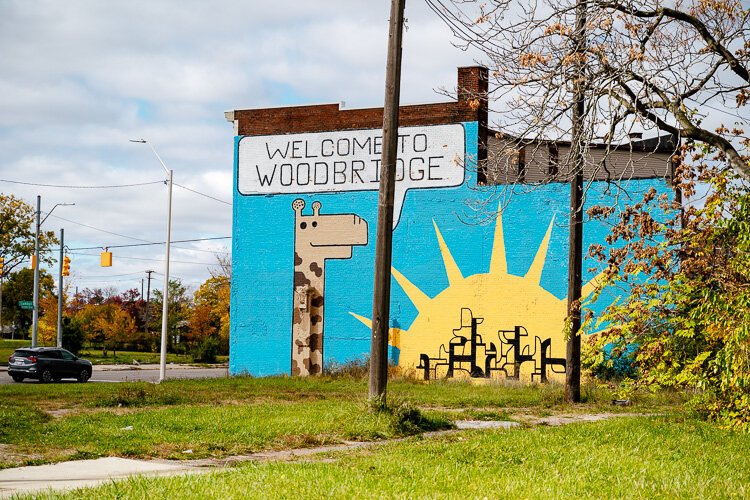
Encouraging community-friendly development
With its historical Victorian homes and proximity to dining and entertaining options, Woodbridge is another Detroit neighborhood that’s seen a lot of new investment over the past few years.
As a nine-year resident and Policy and Property Development Director for Woodbridge Neighborhood Development (WND), Christine Holmes has had a good vantage point to see what’s happening in this south central neighborhood.
“Woodbridge is definitely seeing development, a lot of development,” she says. “We’re seeing housing, single-family homes, and condos being built within the neighborhood and apartments being built on infilled lots and parcels of land in the north end, south end, and central part of our neighborhood.”
The community-oriented nonprofit first came together in 2002 through the actions of a group of residents concerned about abandoned homes and real estate speculation in the community. At the time, there was a lot of confusion about who was buying what in the neighborhood.
Lately, however, there’s been less speculation as most of the property that was once owned by the city or land bank has been purchased and blighted homes have, for the most part, been renovated.
Part of that work involves “development tracking,” which entails tracking every single property and providing quarterly updates with details like project timelines and developer contacts. That information is made publicly available on WND’s website.
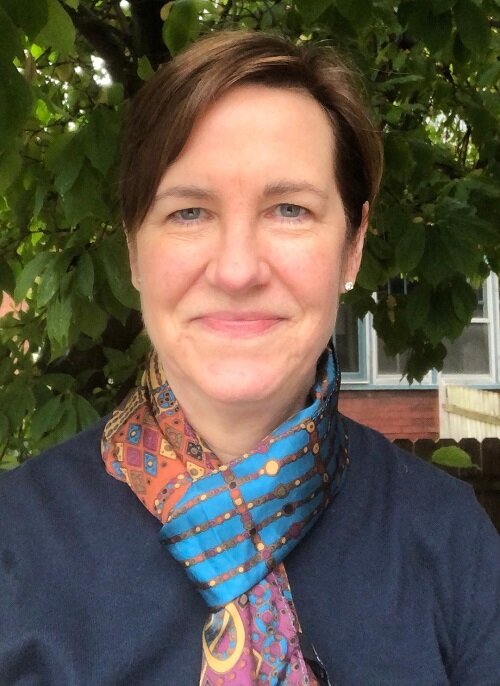
That said, the value of real estate has been rising there for some years now and continues to climb. In fact, residential home assessment prices grew more than 15 percent in Woodbridge and the surrounding area from 2019 to January of this year, according to data from the city of Detroit.
In an effort to steer Woodbridge development in a community friendly direction, WND has partnered with Cinnaire Solutions, a community development financial nonprofit, on the redevelopment of a former bank and a former school and purchased about a dozen lots in the neighborhood.
Beyond that, WND has also worked with residents to draw up community development guidelines, which going forward will inform decisions for its own lots as well as provide direction for discussions with developers. The nonprofit also has a Land and Housing Committee that monitors private development and offers feedback based on community input to the city. It also oversees plans for the nonprofit’s properties.
Overall, Woodbridge Neighborhood Development sees its role as influencing development in the neighborhood in a positive way, while doing everything it can to maintain the existing cultural and economic diversity of the area.
“I think, for the most part, residents are excited to see new development after a long period of nothing happening,” says Holmes. “What we hope is that our community will have a say in these things, to have housing built that may be attractive to them and affordable to them.”
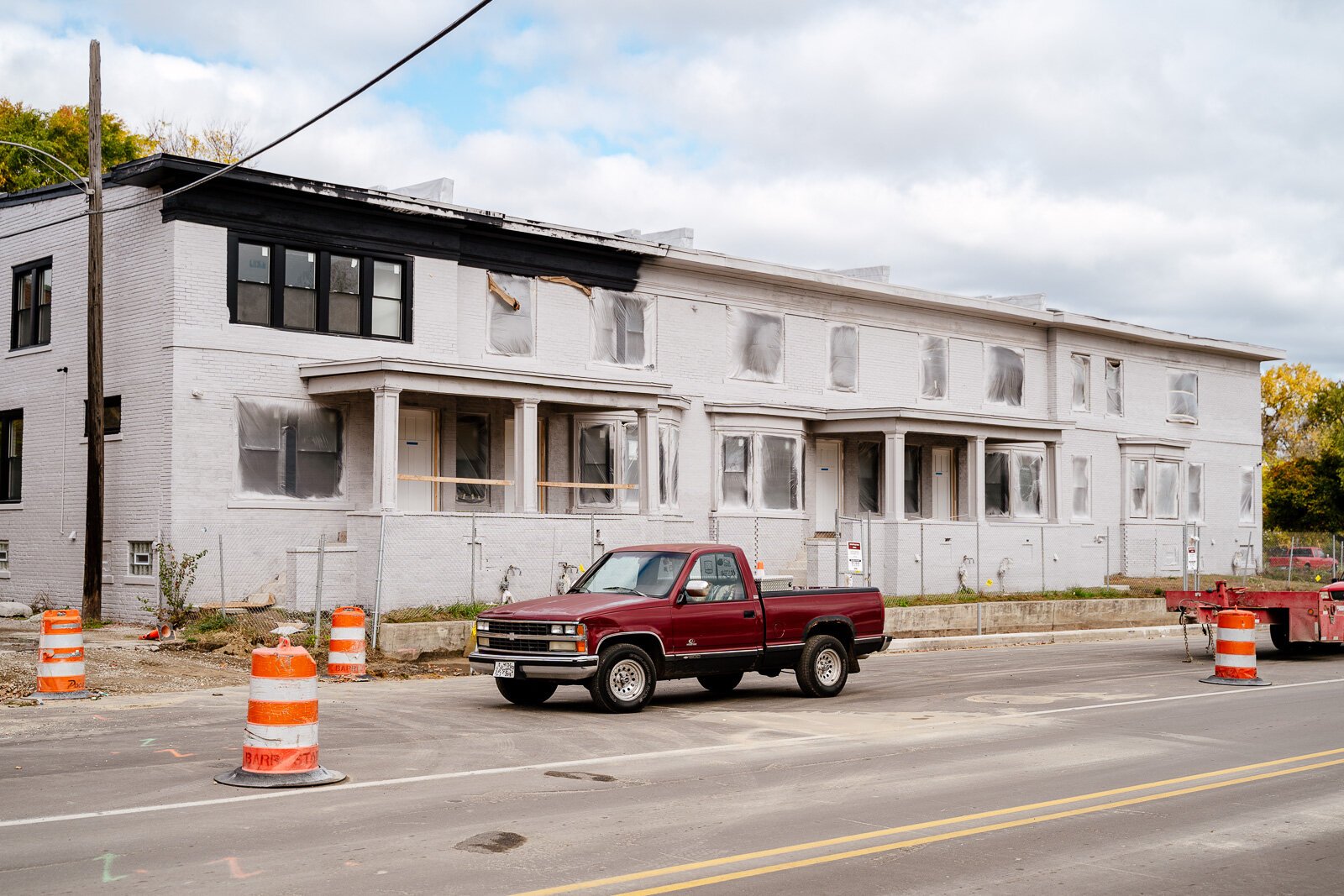
Pursuing equitable development
Like Corktown and Woodbridge, there’s been a lot of talk about Islandview lately too.
There’s no question that the community, which sits just north of Belle Isle, has experienced an upswell in interest on the real estate front. Median home listing prices there jumped from $89,500 in October 2017 to $200,000 in September of this year, according to Realtor.com. That’s an increase of roughly 123 percent.
The area has also caught the eye of developers, who’ve invested in projects like The Saint Charles Residences, a $10 million luxury condo complex that opened in 2018 on the grounds of a former Catholic school near the border of West Village.
The Platform, a Detroit-based development group, had announced plans for a high rise residential and retail project on the corner of East Grand Blvd. and Jefferson Ave, but recently opted out of the development, according to Crain’s Detroit Business. It’s unclear exactly why The Platform left the project, though it’s also faced obstacles with developments in Detroit’s Milwaukee Junction and Fitzgerald neighborhoods. Ownership of the Jefferson property, which includes a former Big Boy restaurant, now goes over to the Detroit Land Bank Authority.
That twist aside, many neighborhood residents have been nervous about the new investment in Islandview, seeing it as an indication of gentrification that could lead to displacement.
The community development organization GenesisHOPE has played an active role in the conversation about what’s going on in Islandview. Jeanine Hatcher, the nonprofit’s executive director, says GenesisHOPE and local groups had been mobilizing

even before the big wave of investment hit Islandview.
“Prior to the development really going off in the neighborhood, we were organizing and educating residents and building resident power,” she says. “So we had our own plan prior to the City getting there. The City may have liked what their architect came up with better, but because of the process they had to honor the community’s input.”
Initially GenesisHOPE had been working alongside the Charlevoix Village Association (CVA), a community group that has been active in the area since 1979. Collectively they mobilized more than 200 community members and laid out a vision for the neighborhood, which they shared with the city.
While the two groups no longer work directly together, due to a difference in opinions about tactics, both have taken active interest in the renovation of a multi-unit townhome complex located at Field St. and Kercheval Ave., known as the 2119 Field Street Redevelopment Project. K8 Development LLC (a subsidiary of New York-based Astral Weeks Development) is overseeing the endeavor, which involves the reconstruction of eight three-bedroom units, ranging from 1,200 to 1,400 square feet. Over the last decade, the complex has sat vacant and fell into disrepair. As a result, rehabbing it has become a pricey venture, with repairs costing an estimated $2.4 million. In order to help cover the costs of renovation, K8 Development has sought out brownfield tax increment funding from the city worth just under $277,000.
While some residents were happy about the effort to rehab the Field Street complex, others have interpreted it as a sign of encroaching gentrification. From the start, rental pricing has been the bone of point of contention over the project. When discussing the affordability of rent prices, analysts usually rely on a metric called Area Median Income that calculates the midpoint of a region’s household income. To determine eligibility for affordable housing programs, 80 percent AMI is considered affordable, with households that make that much or below being considered low income.
Hatcher feels that’s a misleading metric in Detroit, since the federal government uses the median income of all households in Detroit-Warren-Livonia metropolitan statistical area to determine the city’s AMI. With that in mind, GenesisHOPE and CVA felt the initial rent set for the Field Street townhomes were far out of reach for Islandview residents.
“Most of the units were actually at 120 percent AMI,” says Hatcher. “If you know anything about AMI, the average Detroiter is at 50 percent AMI.”
In Detroit, the rent for a three-bedroom apartment unit set at 120 percent AMI could cost up to $2,121 a month. At 50 percent it could cost up to $1,020 a month. Landlords do have the option of charging less than those figures, however, and it’s worth noting that K8 Development has not yet determined the exact rates for rent for units at its Field St. complex.
Initially the developer offered to make two units available at 80 percent AMI and to hire Detroiters for the renovation and building management.
Despite that offer, many community members were still unhappy. Among other things CVA demanded a community benefits agreement, lower rental costs, and home repair grants.
In the end, K8 ended up negotiating with Hatcher and other local leaders like Pastor Barry Randolph of Church of the Messiah to bring down the costs of one of the eight three-bedroom units to 50 percent AMI, says Astral Weeks spokesperson Dan Austin.
“That was per the community’s request,” says Austin. “Residents wanted fewer units at deeper affordability. We listened to the community and changed our plan to meet their request.”
K8 Development also followed through on its offer to hire Detroiters for reconstruction and management of the complex.
While Hatcher understands the deal won’t please everyone, she’s glad the community will be getting something from the project. Ideally the GenesisHOPE director believes that every new market rate unit that comes in the neighborhood should be balanced with another unit at 50 percent AMI.
“It has to be a one-to-one ratio or else you are displacing people,” she says.
That said, she concedes the complexities of real estate can make those aspirations difficult to fulfill. A case in point is GenesisHOPE Village, a new housing development her organization is partnering on with Cinnaire Solutions to build.
Located on the former grounds of Eastern High School at Mack Avenue and East Grand Boulevard, the $12 million project will feature a combination of townhomes and apartments. Ultimately there will be 30 townhouses on the site and a four-story mixed-use building with 31 apartments (one-, two-, and three-bedroom units) and 3,000 square feet of commercial space. The project is expected to be completed in 2022.
Due to the difficulty of accessing development tools like gap financing and low-income housing credits, however, the best GenesisHOPE can offer for rent is 60 percent AMI. While Hatcher understands the irony there, at the end of the day her organization is committed to making development equitable in Islandview.
“When people are going to developers and demanding things, you’ve really got to have an understanding of how it works,” she says. “We try to provide as much support as we can, as much feedback as we can, and we try to lead by example.”
Clarification: K8 Development has not yet announced rental unit rates for its 2119 Field St. complex in Islandview. The article has been updated to reflect that as well as its follow-through on hiring Detroiters for the project and the fact its initial offer was to make two units at the complex available at 80 percent AMI.
Resilient Neighborhoods is a reporting and engagement series that examines how Detroit residents and community development organizations are working together to strengthen local neighborhoods. It’s made possible with funding from the Kresge Foundation.
